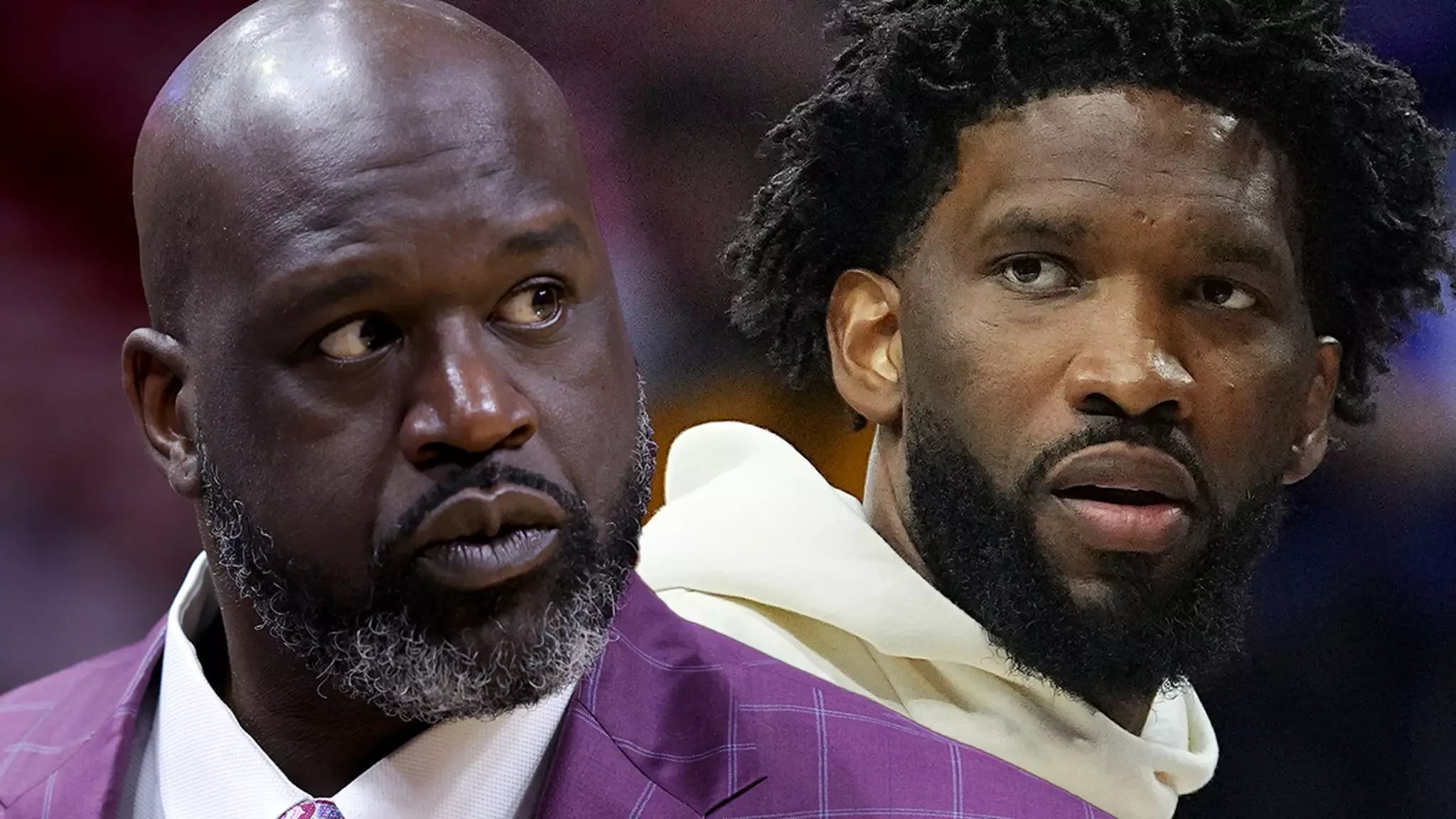In the world of professional basketball, the pressure to perform consistently, especially for star players, is immense. Recently, Shaquille O’Neal, an iconic figure in the NBA, publicly criticized Joel Embiid, star center for the Philadelphia 76ers, for his reluctance to participate in back-to-back games. This criticism raises significant questions regarding not only Embiid’s dedication and drive, but also the broader implications of how modern players manage their health and workload in a league that is shifting towards a more cautious approach to player availability.
Embiid’s absence from the season opener against the Milwaukee Bucks, followed by missed games due to “left knee injury management,” highlights a growing trend among elite athletes prioritizing long-term health over immediate game appearances. While this cautious approach may protect players from potential injuries, it also undermines team cohesion and fan engagement. Shaq’s pointed remarks about Embiid’s fitness and tenacity suggest that he believes the 76ers’ superstar must change this narrative if he hopes to emerge as a true leader and competitor in the league. By labeling Embiid as “soft,” O’Neal challenges him to embrace a mentality that prioritizes playing through adversity—an ethos that defined O’Neal’s own illustrious career.
O’Neal’s outrage signals a wider conversation about the NBA’s evolving landscape regarding player management. Since the implementation of policies aimed at curbing the trend of resting players, the league has been monitored for compliance. The scrutiny surrounding Embiid’s absences is part of a larger investigation into whether resting practices are being abused under the guise of injury management. This tension illustrates the dichotomy between modern athletes who seek to protect their longevity and the expectations of fans and former players who desire spectacle and competitiveness.
Critics like Shaquille O’Neal place immense value on the competitive spirit and relentless work ethic that often characterizes basketball’s greats. He highlighted Embiid’s remarkable 70-point game last season as evidence of untapped potential. According to O’Neal, if Embiid has the capability to perform at such a high level in isolated instances, he should strive for that consistency as part of his broader legacy. The question remains whether Embiid will take this feedback to heart or continue on a path of cautious participation, potentially limiting his contributions to the team’s success.
Moving forward, both fans and analysts will be watching closely to see how Joel Embiid responds to the scrutiny. Can he rise above the criticism and align his on-court presence with the expectations set by legends like Shaquille O’Neal? The current dialogue about player fitness, accountability, and competitive edge is essential for the sport’s progress. Whether Embiid chooses to embrace the mantle of leadership or remains content with a more conservative approach will ultimately shape his legacy in a league defined by its fierce competition. The challenge, it seems, is as much about physical endurance as it is about mental fortitude.







Leave a Reply